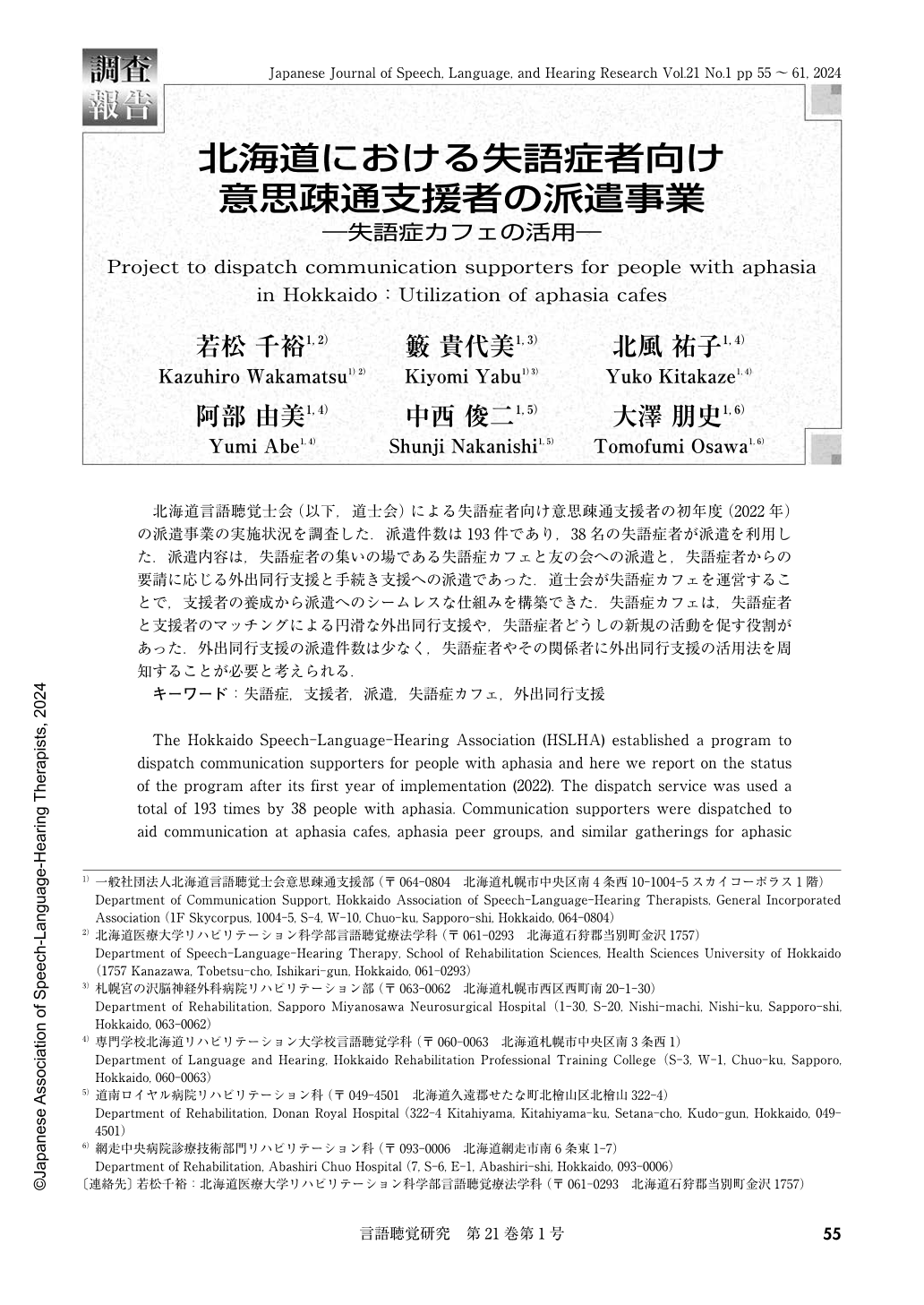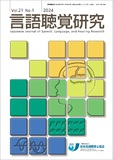Japanese
English
- 有料閲覧
- Abstract 文献概要
- 1ページ目 Look Inside
- 参考文献 Reference
北海道言語聴覚士会(以下,道士会)による失語症者向け意思疎通支援者の初年度(2022年)の派遣事業の実施状況を調査した.派遣件数は193件であり,38名の失語症者が派遣を利用した.派遣内容は,失語症者の集いの場である失語症カフェと友の会への派遣と,失語症者からの要請に応じる外出同行支援と手続き支援への派遣であった.道士会が失語症カフェを運営することで,支援者の養成から派遣へのシームレスな仕組みを構築できた.失語症カフェは,失語症者と支援者のマッチングによる円滑な外出同行支援や,失語症者どうしの新規の活動を促す役割があった.外出同行支援の派遣件数は少なく,失語症者やその関係者に外出同行支援の活用法を周知することが必要と考えられる.
The Hokkaido Speech-Language-Hearing Association (HSLHA) established a program to dispatch communication supporters for people with aphasia and here we report on the status of the program after its first year of implementation (2022). The dispatch service was used a total of 193 times by 38 people with aphasia. Communication supporters were dispatched to aid communication at aphasia cafes, aphasia peer groups, and similar gatherings for aphasic people, and also, in response to requests from members of the aphasic community, they were sent to assist with communication and procedures in various places. Through operating the regular aphasia cafes and aphasia peer groups, it was possible to establish a system that continuously nurtures communication supporters from their training through to their dispatch. The aphasia cafes promoted the matching of aphasic persons with suitable communication supporters which in turn resulted in a smooth system for supporting and accompanying outings. Furthermore, the cafes also encouraged new collaborative activities among people with aphasia. Since the number of dispatches for support in accompanying outings was small, we consider it necessary to better inform people with aphasia and their concerned persons about this type of support.

Copyright © 2024, Japanese Association of Speech-Language-Hearing Therapists. All rights reserved.


